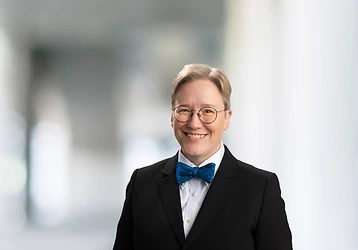Automated Vehicles 3.0: A Movement towards Streamlining Exemptions and Mitigating Unintended Regulatory Barriers
On October 4, 2018, the U.S. Department of Transportation released the long-awaited Autonomous Vehicles 3.0 Preparing for the Future of Transportation guidelines (“AV 3.0”). These guidelines build upon the voluntary guidance issued in Automated Driving Systems 2.0: A Vision for Safety and incorporate comments from many stakeholders including manufacturers, suppliers, state and local governments, and infrastructure owners and operators.
The new guidelines broaden the scope in the autonomous realm by emphasizing multimodal solutions: AV 3.0 is about emerging mobility. The policy issues addressed in AV 3.0 fall under multiple governmental authorities including the National Highway Traffic Safety Administration (NHTSA), Federal Motor Carrier Safety Administration (FMCSA), Federal Highway Safety Administration (FHWA) and Federal Transit Administration (FTA).
Significantly, AV 3.0 foreshadows new rulemaking and strategies towards developing safety standards to promote innovation and remain technology neutral. Overall, AV 3.0 promotes:
Preventing a patchwork of state safety standards
The guidelines continue to address the preemptive force of the Federal Motor Vehicle Safety Standards. State, local and tribal governments cannot enforce laws on the safety performance of a vehicle in any way that differs from a federal standard. At the same time, compliance with the FMVSS does not necessarily shield a manufacturer or supplier from liability. AV 3.0 encourages state, local and tribal governments to review any existing laws that may preclude testing and deployment of autonomous driving systems, to adopt policies and procedures for licensing and registration to address autonomous vehicles, to assess any changes needed within the infrastructure and to provide guidance to the transportation workforce and the public in general. At the same time, these governmental units should continue to turn to the 2.0 guidelines for more detailed best practices.
Mitigating an “unintended regulatory barrier”
AV 3.0 recognizes that current FMVSS may be a barrier to innovation. Autonomous vehicles designed for Level 4 and 5 performance may not be equipped with steering wheels, brake pedals, accelerator pedals, mirrors or other devices that are currently required for vehicles on the road. NHTSA will, in an upcoming rulemaking, seek comment on changes to relevant safety standards (which would likely include FMVSS Nos. 101, Controls and Displays; 108, Lamps, Reflective Devices, and Associated Equipment; 111, Rear Visibility; 114, Theft Protection and Rollaway Prevention; 126, Electronic Stability Control Systems; and 135, Light Vehicle Brake Systems).
In addition to new rulemaking, NHTSA will make FMVSS more flexible, responsive, technology-neutral and performance-oriented. AV 3.0 suggests that new FMVSS may “incorporate simpler and more general requirements to validate” autonomous systems in a world where unpredictable obstacles, vehicles, and pedestrians dot the landscape.
Streamlining and modernizing
NHTSA will also seek comments regarding proposals to streamline exemption petitions. Until new FMVSS can accommodate autonomous design, manufacturers will still be required to seek exemptions. NHTSA acknowledges that exemptions must be grated to provide “sufficient flexibility to accommodate a wide array of automated operations.”
Not picking winners and losers
In AV 3.0, U.S. DOT acknowledged that many states have conducted significant research and testing activity paired with considerable private investment. To avoid the perception of favoritism or “picking winners and losers,” DOT has determined that it will no longer recognize the ten Automated Vehicle Proving Grounds that were announced in January 2017.
Encouraging technical standards
As noted in our previous Alerts, standards bodies have become significant players in the development of policies on automated vehicle systems. AV 3.0 continues to support voluntary technical standards including those that address technology, functional standards, and safety. A list can be found in AV 3.0 Appendix C.
Maintaining focus on security and privacy
The U.S. DOT reinforced that it would work closely with the Department of Justice, the Department of Commerce’s National Institute of Standards and Technology (NIST), the Federal Trade Commission (FTC), the Federal Communications Commission (FCC), and the Department of Homeland Security (DHS) and other private industry subject matter experts to address vulnerabilities and manage cyber risks. AV 3.0 further stressed the importance of protecting any consumer data collected by autonomous vehicles.
Prepare to play a role: opportunities to comment
AV 3.0 clearly expresses that the role of industry will continue to be an important one. Comments and feedback will be welcome to the following agencies as additional policy, guidance and rulemaking is pursued:
- NHTSA: NHTSA will seek comment on regulatory barriers to the introduction and self-certification of autonomous systems. It is developing an ANPRM (Advance Notice of Proposed Rulemaking) to allow for Level 4 and 5 vehicles that may remove or modify requirements if no human driver is involved in vehicle operation. Another ANPRM will seek public comment on a national pilot program to allow NHTSA to monitor and learn from testing and development of emerging technologies.
- FMCSA: The FMCSA is finalizing an ANPRM to identify regulatory gaps for the inspection, repair and maintenance of automated driving systems. It is also working on policy recommendations in the areas of design, development, testing and integration of equipment into commercial motor vehicles.
- FTA: FTA is preparing guidance to provide clarity on the deployment of automated transit buses.
- FHWA: The FHWA is reviewing standards to address the uniformity and consistency of traffic control devices.
Butzel Long continues to track, analyze, and advise on a variety of issues surrounding this rapidly evolving technology and regulatory framework. Your Butzel attorneys have focused specialties and expertise that cover the broad scope of issues surrounding mobility and transportation. Contact your Butzel attorney for updates or for assistance in preparing comments on upcoming rulemakings.
Jennifer A. Dukarski
734.213.3427
dukarski@butzel.com
Mitch Zajac
313.225.7059
zajac@butzel.com












